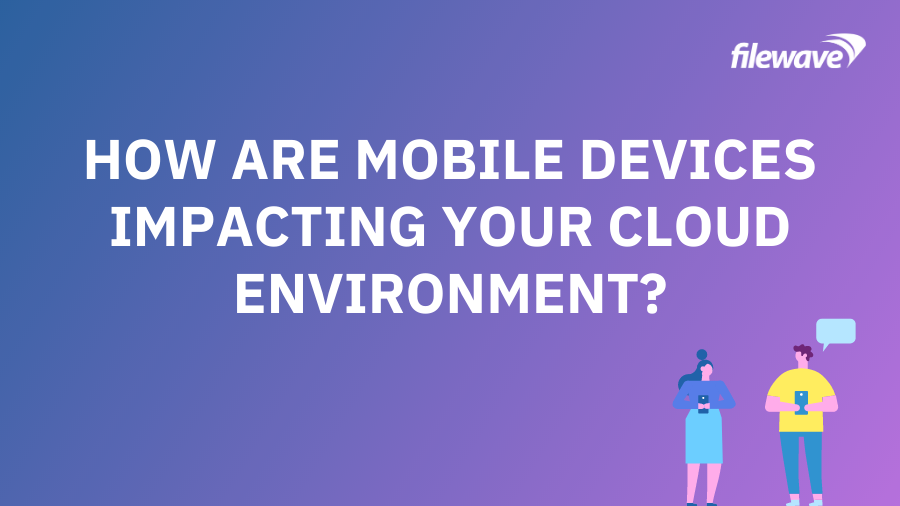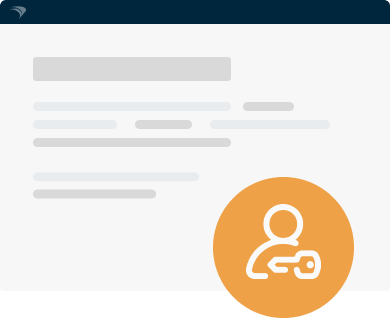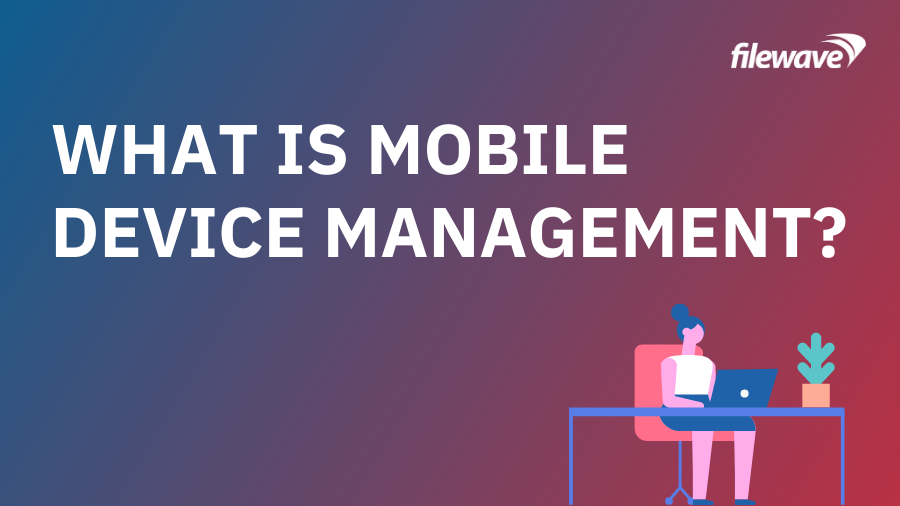Mobile devices have made the average workday a much more convenient experience. But for IT, these devices have changed cloud technology forever. Here’s how.
Less than 15 years ago, your day at work was probably a little less hectic. And smartphones weren’t even a thing.
Then the iPhone entered into the enterprise equation and everything changed. Mobile devices became more advanced – as well as more integral – to business strategy. Which is why today, your IT environment is making massive investments into the cloud and management solutions to keep employees connected and data access secure.
Combined with cloud technology, these non-traditional IT assets have become more powerful than the desktop computers of yesterday.
So, how will your journey to build a mobile-first work environment impact your cloud technology forever? How will mobile devices affect your cloud adoption, maturity, and governance? Let’s explore three primary changes – after clearing up one all-too-common misconception first, of course.
The Truth About Cloud
You probably hear the term “cloud” used all over the IT world. But there are a lot of self-proclaimed experts that don’t really understand what it means. In fact, there’s probably not a more misused term in technology today. So, what does cloud mean?
It’s simple, really. Cloud is a tool that gives your users access to your organization’s data and applications – no matter when, where, or which device they’re using. This easier employee access means faster processes, minimal downtime, and greater workforce learning. Not to mention a shorter time to market and the potential to create new, value-added services too.
And it’s no surprise that smartphones and tablets are the driving force behind the cloud adoption trend. Your employees demand a convenient user experience that enables them to access the data they need on their own terms –mobile devices give them the ability to do so.
But you’re not the only one experiencing this stress. A Goldman Sachs report found that only 29% of internet-connected devices are desktop computers. Meanwhile, smartphones and tablets make up a whopping 66% of this group. That’s why tech industry leaders like Microsoft are betting so big on the mobile-first future – and rethinking legacy interfaces and infrastructure going forward.
That said, mobile devices will impact your future in major ways, too. They’re going to make your cloud services more user-centric, your cloud security even more essential than it already is, and your cloud environment more diverse.
Cloud Services Catered to Your Customer
As your users turn away from enterprise-owned devices to use their own instead, the lines between consumer and business-ready cloud will be blurred like never before. And, whether it’s fair or not, a lot of the responsibilities and risk management tasks to make this tenuous arrangement work will fall squarely on your shoulders (assuming they haven’t already).
While major mobile device manufacturers such as Apple and Google offer cloud-based apps and storage solutions for personal devices, giving employees the ability to access enterprise-level cloud services to connect to internal networks, apps, CRM systems, reporting tools, and real-time data is a big deal. And it will take a ton of work on your end to keep this model safe and supported.
But that doesn’t mean you shouldn’t make the change. Far from it, actually – because this evolution is inevitable no matter how hard you try to fight it. Your users have always wanted to work on their own terms. Mobile devices will be the turning point that makes this dream a reality. If you’re not doing everything you can to make your cloud services as user-friendly as possible, you’re falling behind in a race where it’s almost impossible to catch back up.
Security Isn’t Easy – It’s Essential
Did you know that the average company stores one-third of its mission-critical apps entirely in the cloud? As mobile devices continue to flood into your business, that figure is only going to continue to climb. Whenever an employee brings their own device or application into your corporate cloud, ensuring support and control over its usage becomes an infinitely harder task. But it’s one that you can’t afford to skip.
As you know, enforcing proper password protections and login routines across a variety of enterprise software platforms can be an exhausting, complex, and resource-draining job. And new devices combined with a more fluid and instant gratification-seeking workforce doesn’t exactly make secure access any easier to manage.
Mobile devices will present never-before-seen challenges to IT security experts tasked with balancing efficient business processes and regulatory compliance initiatives. As hackers increase the volume and innovation level of their attacks moving forward, mobile devices will become a growing threat that’s likely to make you rethink how you protect your users and your data.
The Rise of Hybrid Cloud Environments
For many businesses, there is a level of concern when it comes to storing critical information on a public cloud system. Considering the demand for rapid and secure cloud service delivery controls, many enterprises today rely on private cloud to perform this role.
But times are changing, and thanks to mobile devices your best option going forward is likely a hybrid cloud that takes advantage of both solution’s strengths in a complementary way. You’ll be able to leverage a privately managed cloud within corporate data centers to minimize the risk of exposure and inadequate management expertise while prioritizing simplicity and ease-of-use by using publicly managed cloud wherever possible.
In an increasingly mobile world, your IT admins must also be able to remotely access their reporting interfaces, devices, and core IT functionalities – and a hybrid cloud environment is more likely to deliver all of these benefits than a public or private cloud on its own. Plus, adopting a hybrid cloud solution is also your first step toward developing mobile administration tools, processes, and governance models that will eventually be considered a necessity.
As IT professionals continue to experience the convergence of mobile devices and desktop technology, cloud has become an important tool for ensuring your employees have everything they need to succeed. If they haven’t already impacted your cloud environment, powerful mobile devices will soon. In 2021 and beyond, you’ll be able to differentiate your company and gain competitive advantages by using mobile technology.
Schedule an engineer-led demo of our platform to see how FileWave is already helping industry leaders change the way they work forever.



